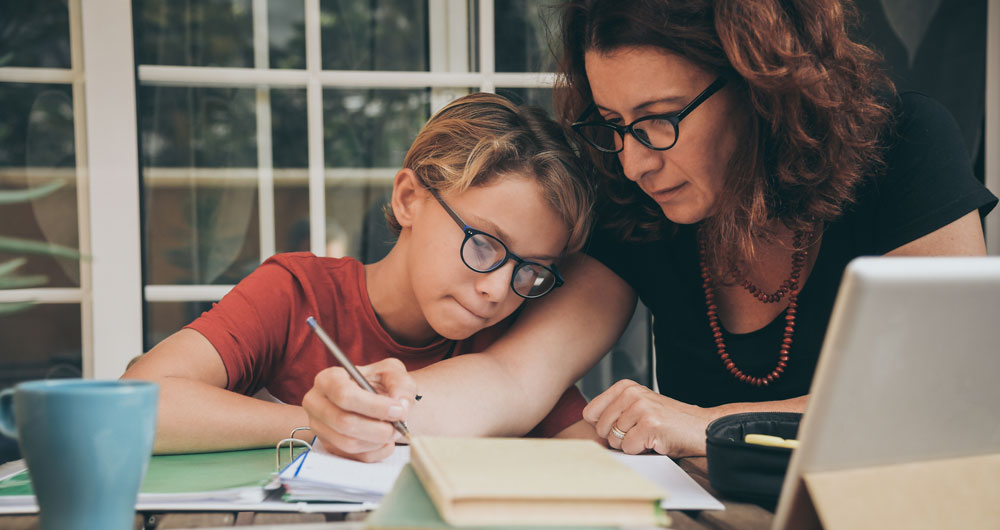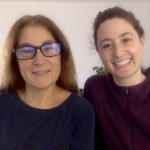Jewish learning All in the Family


The mother-and-daughter team co-teach “Families, School, and Communities,” a Hebrew College graduate education class that prepares Jewish educators, parents, and leaders throughout the Jewish community to build stronger partnerships.
Ilene started teaching parents when her daughter, Ahava, was 6. A graduate of the Wexner Heritage Program, Ilene realized how valuable adult text study would be for other parents. So she created a program at her Baltimore congregation giving parents resources to enhance their children’s Jewish educational experience at home. She called it Gesher L’Torah.
Ilene began by studying a text with parents, then had the parents read a related story to their children. When the students came to school having read the story, they were even more engaged. She realized she could use this method to enhance the Jewish educational experience of teachers as well and helped to develop and direct a professional development program. With a grant from the Children of Harvey and Lyn Meyerhoff Philanthropic Fund, she created Machon L’Morim Bereshit.
Soon after, Ilene began teaching “Families, School, and Communities,” first at Baltimore Hebrew College, where she founded the early childhood department, and then online through Hebrew College.
“Families are the first place where children are going to learn about Judaism and Jewish practices,” Ilene said. “I wanted to help educators think about how to help parents feel comfortable with creating home experiences. This became a course about building relationships, making networks, and creating connections with the community.”
A few years ago, Ilene invited Ahava, now an early childhood education consultant, to teach this course with her. They expanded the course from early childhood educators to anyone working in the field of Jewish communal service, with the goal of helping Jewish leaders understand how to build families into their programming and help families build stronger relationships with their schools or organizations. They also teach similar courses at other institutions, as well as professional development seminars.
“Building relationships, whether in congregations or in schools or classrooms, between professionals or between professionals and lay leaders, is critical for success in any effort that we’re engaging in,” Ilene said. “ Relationships are the key to feeling connected whether to a person or an organization. The tools we teach in the course will help individuals strengthen and build personal and professional relationships.”
The course invites students to continue exploring their own practices and engage in personal reflection on their relationships with children and families, Ilene said. Students have the opportunity to assess their current practices, create a vision, an implementation strategy, and a timeline for building partnerships among families in their school and their community. The class is asynchronous so educators, who are busy teaching during the day, can fit it into their busy schedules. Community members can also take it for non-credit.
“This class is very practical.,” Ahava said. “We design classes where we hope students will feel supported in learning something new and be able to use this information in their classrooms. We want the material to be immediately applicable to our students’ lives both professionally and personally.”
Ilene and Ahava, who share an office in Baltimore, have always taught their Hebrew College course online, but teaching this year, during COVID, they said, will be an opportunity for educators and community members to continue building upon and developing innovative ways to build partnerships and collaborations when face-to-face interactions aren’t possible. They have already seen exciting and creative forms of relationships building in the field.
“We’re all struggling with this crisis. Teachers are under unimaginable stress. Many of us are working to find new ways to build connections and strengthen relationships with our students, our families, and our communities,” Illene said. “Together we will explore and practice secular and Jewish relationship building theories that result in positive and powerful family, school, and community partnerships.
Learn more about this course or other graduate non-credit offerings.
We are able to post stories like these because of you. To see more stories and support Hebrew College’s Community Education programs, please consider making a gift to Hebrew College.

